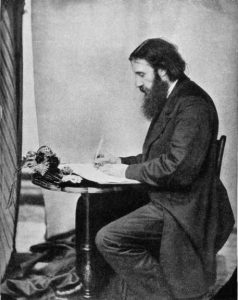Th/Th: Quips and Quotes
Friends, my goal for these Theological Thursdays was to provide you with thoughts and quotes and summary of all I'm learning here in Oxford. I just want so much to share! I find that the learning itself, however, demands an amount of time that keeps me from the long, theological discussions I wish I could post. They're coming; my deep desire and goal after these 3 years of study is to take the academic theology I've learned and tell it afresh in all sorts of imaginative ways. For now, though, how about a Thursday of quotes culled from the best of my each week's reading? Comments and discussion are so welcome, perhaps it can become a conversation. (Eventually, I can post bits of my papers here too.) And at the very least I can share a few of the gems I find through the week, the paragraphs that make me look up from reading in a coffee shop or library with eyes that suddenly feel they can see all the way to eternity...
This week:
Irenaeus in his treatise 'Against the Heresies' where he takes on Gnostic doctrines: In his immeasurable love, He (Christ) became what we are in order to make us what He is.
Michael Lloyd (college principal) on the Gnostic heresy (Gnosticism posits that physical/material reality is 'bad', spirit is 'good'): Orthodox Christian belief insists on the essential goodness of creation - it is a good world that has gone wrong, not a bad world...we respond to the Gnostic challenge theologically by developing a theology that self-consciously insists on the goodness of creation, the Redeemer God as being the Creator God, grace rather than knowledge as saving us, Christ as fully human and fully divine, and a holistic eschatology that insists on the redemption of the cosmos.
Margaret Whipp one of my tutors, explaining the different phases of spiritual growth in human development talked about 'conjunctive faith', when a youngish believer moves into a phase of faith (often through suffering or doubt) where he or she must hold things in tension, and learn to live faith in paradox. I find these words so true, and am reminded again that it is often in pain, doubt, discouragement or struggle that we come to maturity: Conjunctive faith describes a move to deeper complexity...a more paradoxical understanding of faith which seeming opposites are held together in loving tension and patient humility. The individual who worked so hard to achieve clarity and autonomy now face up to his limitations, personally and intellectually. Sometimes through bitter experience, the individual must embrace the sacrament of defeat, learning a new receptivity to the goodness and truth of others and a deeper reliance on the mysterious grace of God.
George MacDonald - the long essay I'm doing is on his portrayal and understanding of God's role in our suffering and how that developed  throughout his (very sorrow-filled) life. God's role, and presence in our suffering is something I'm very keen to study and I love MacDonald because he so powerfully presents God as Father:
throughout his (very sorrow-filled) life. God's role, and presence in our suffering is something I'm very keen to study and I love MacDonald because he so powerfully presents God as Father:
If we will but let our God and Father work His will with us, there can be no limit to His enlargement of our existence.
No words can express how much the world owes to sorrow. Most of the Psalms were born in the wilderness. Most of the Epistles were written in a prison. The greatest thoughts of the greatest thinkers have all passed through fire. The greatest poets have "learned in suffering what they taught in song." In bonds Bunyan lived the allegory that he afterwards wrote, and we may thank Bedford Jail for the Pilgrim's Progress. Take comfort, afflicted Christian! When God is about to make pre-eminent use of a person, He put them in the fire.
Oh, I believe that there is no away; that no love, no life, goes ever from us; it goes as He went, that it may come again, deeper and closer and surer, and be with us always, even to the end of the world.
That's all for now, friends. I'm mulling all of these thoughts. Let me know if they startle any insights alive in your hearts as well.